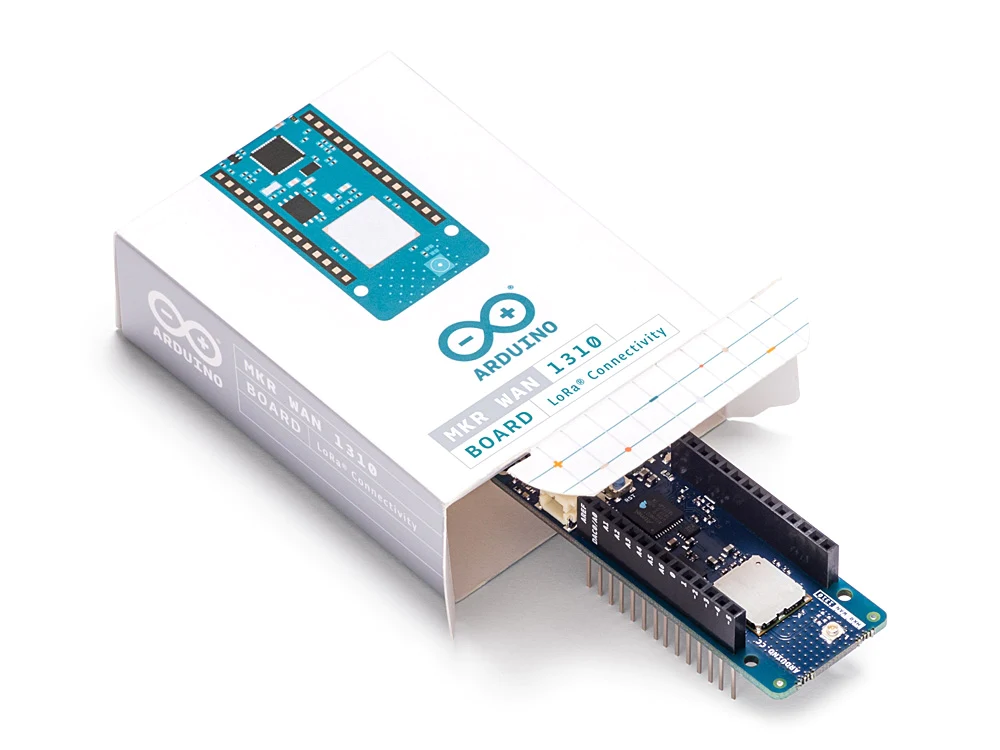Connect your sensors and actuators over long distances harnessing the power of the LoRa® wireless protocol or throughout LoRaWAN™ networks.
The Arduino MKR WAN 1310 board provides a practical and cost effective solution to add LoRa® connectivity to projects requiring low power. This open source board can be connected to: the Arduino IoT Cloud, your own LoRa® network using the Arduino LoRa® PRO Gateway, existing LoRaWAN™ infrastructure like The Things Network, or even other boards using the direct connectivity mode.
Better and More Efficient
The MKR WAN 1310, brings in a series of improvements when compared to its predecessor, the MKR WAN 1300. While still based on the Microchip® SAMD21 low power processor, the Murata CMWX1ZZABZ LoRa® module, and the MKR family’s characteristic crypto chip (the ECC508), the MKR WAN 1310 includes a new battery charger, a 2MByte SPI Flash, and improved control of the board’s power consumption.
Improved Battery Power
The latest modifications have considerably improved the battery life on the MKR WAN 1310. When properly configured, the power consumption is now as low as 104uA! It is also possible to use the USB port to supply power (5V) to the board; run the board with or without batteries - the choice is yours.
On-board Storage
Data logging and other OTA (Over The Air) functions are now possible since the inclusion of the on board 2MByte Flash. This new exciting feature will let you transfer configuration files from the infrastructure onto the board, create your own scripting commands, or simply store data locally to send it whenever the connectivity is best. Whilst the MKR WAN 1310’s crypto chip adds further security by storing credentials & certificates in the embedded secure element.
These features make it the perfect IoT node and building block for low-power wide-area IoT devices.

Build Your Own Infrastructure
If you are in need ot building your own dedicated LoRa® infrastructure you should consider using the Arduino LoRa® PRO Gateway, it will let you monitor all of your MKR WAN 1310 boards directly from the Arduino IoT Cloud.